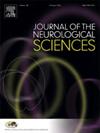Impact of dysphagia on early psychosocial consequences after acute ischemic stroke
IF 3.2
3区 医学
Q1 CLINICAL NEUROLOGY
引用次数: 0
Abstract
Background
Post-stroke dysphagia is common and known to impair both recovery and overall quality of life of stroke survivors. This study explores whether its impact extends to psychosocial consequences following acute ischemic stroke.
Methods
We prospectively evaluated 1117 consecutive patients with acute ischemic stroke (STROKE-CARD Registry 2020–2023, study center Innsbruck, Austria) for post-stroke dysphagia using standardized clinical and instrumental swallowing examinations during initial hospital stay. Outcomes were dependency in daily activities, changes in living arrangements, and employment status, assessed at hospital admission and three months post-stroke.
Results
Dysphagia was diagnosed in 233 patients (20.9 %) at hospital admission (mean age 70.6 ± 13.4 years, 36.3 % females). At three months post-stroke, patients with dysphagia showed significantly higher rates of adverse psychosocial outcomes compared to those without: dependency in daily activities (23.0 % vs 5.1 %, aOR 2.63 [1.5–4.5]), need for care allowance (34.2 % vs 9.0 %, aOR 2.41 [1.6–3.8]). In working-age patients (≤65 years), those with dysphagia were more likely to have not returned to work (69.4 % vs 29.7 %, aOR 2.61 [1.2–5.8]). These associations remained significant after adjusting for age, sex, stroke severity, and functional disability at discharge.
Conclusions
Post-stroke dysphagia is associated with serious psychosocial consequences including increased dependency in daily living and a higher risk of being unable to return to work. These findings underscore the need for awareness as well as comprehensive rehabilitation strategies addressing both physical and psychosocial consequences of dysphagia.
吞咽困难对急性缺血性脑卒中后早期社会心理后果的影响
脑卒中后吞咽困难是一种常见的症状,它会损害脑卒中幸存者的康复和整体生活质量。本研究探讨其影响是否延伸到急性缺血性中风后的社会心理后果。方法前瞻性评估1117例连续急性缺血性卒中患者(stroke - card Registry 2020-2023,研究中心Innsbruck, Austria)卒中后吞咽困难,采用标准化临床和仪器吞咽检查首次住院期间。结果是日常活动的依赖性、生活安排的改变和就业状况,在入院时和中风后三个月进行评估。结果233例(20.9%)患者入院时确诊为吞咽困难,平均年龄70.6±13.4岁,其中女性占36.3%。卒中后3个月,吞咽困难患者的不良心理社会结局发生率明显高于无吞咽困难患者:日常活动依赖(23.0% vs 5.1%, aOR 2.63[1.5-4.5]),需要护理补贴(34.2% vs 9.0%, aOR 2.41[1.6-3.8])。在工作年龄(≤65岁)的患者中,吞咽困难患者更有可能没有重返工作岗位(69.4% vs 29.7%,比值为2.61[1.2-5.8])。在调整了年龄、性别、中风严重程度和出院时的功能残疾后,这些相关性仍然显著。结论卒中后吞咽困难与严重的社会心理后果相关,包括日常生活依赖性增加和无法重返工作岗位的高风险。这些发现强调需要意识和全面的康复策略来解决吞咽困难的生理和心理后果。
本文章由计算机程序翻译,如有差异,请以英文原文为准。
求助全文
约1分钟内获得全文
求助全文
来源期刊

Journal of the Neurological Sciences
医学-临床神经学
CiteScore
7.60
自引率
2.30%
发文量
313
审稿时长
22 days
期刊介绍:
The Journal of the Neurological Sciences provides a medium for the prompt publication of original articles in neurology and neuroscience from around the world. JNS places special emphasis on articles that: 1) provide guidance to clinicians around the world (Best Practices, Global Neurology); 2) report cutting-edge science related to neurology (Basic and Translational Sciences); 3) educate readers about relevant and practical clinical outcomes in neurology (Outcomes Research); and 4) summarize or editorialize the current state of the literature (Reviews, Commentaries, and Editorials).
JNS accepts most types of manuscripts for consideration including original research papers, short communications, reviews, book reviews, letters to the Editor, opinions and editorials. Topics considered will be from neurology-related fields that are of interest to practicing physicians around the world. Examples include neuromuscular diseases, demyelination, atrophies, dementia, neoplasms, infections, epilepsies, disturbances of consciousness, stroke and cerebral circulation, growth and development, plasticity and intermediary metabolism.
 求助内容:
求助内容: 应助结果提醒方式:
应助结果提醒方式:


